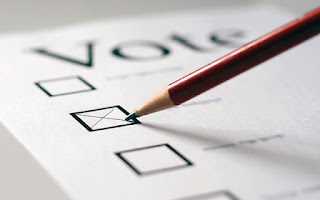Should Africa Look To Negotiating With Terrorists To Achieve Its Vision Of A Conflict Free Continent?
“We do not negotiate with terrorists”
These are words that have dominated the United States of America’s Foreign Policy Making since the 1970s under the leadership of President Richard Nixon and have further been intensified in the International Relations arena since the 9/11 attacks but how effective is this approach for African countries?
Our point of departure should be an emphasis on how we need to adopt and implement African solutions to African problems, it cannot be stressed enough just how important this principle is.
This approach of resorting to force at the slightest inconvenience was first adopted by the United States of America (USA) making it the de facto approach\sentiment of the rest of the world but one thing that I believe we need to take note of is that the USA has every means possible to stand by this because it possesses the financial, political and military resources and footing to back up such a bold statement.
When you bring the same problems i.e. terrorism, civil wars, blatant human rights abuses as well as genocides to an underdeveloped and under-resourced region like Africa, such a bold statement cannot be carelessly uttered because what other option do you have really other than negotiating your way out?
This is in no way to put much focus on how the continent is often stripped of its power and left out to be a hopeless player operating on unequal footing in International Relations. However, we would be disingenuous if we tried to run away from this painful truth coupled with the fact that with all this natural wealth that Africa possesses which is often made ineffective (read redundant) in advancing our development as a continent due to, inter alia, corruption, civil unrest, an over-reliance on external aid as well as rampant maladministration which ultimately undo all the work and any prospect of prosperity in the region. Unfortunately, until we fix that, this is our reality and we cannot divorce from it when taking a stance on such matters.
I have read extensively on war and its effects, I have also watched documentaries on the subject but I really do think the downside to consuming such content from an official\statistics point is just how easy it is to often overlook that these are lives of actual people, people with stories, feelings, families, hopes and dreams just like us.
It is so easy to read [it] as a statistic that such an atrocious human right violation happened to, forgetting that this was a person robbed of freedom, happiness and realizing their fullest potential so although I had read and continue to read on the subject, I would say my first exposure to war and its effects were through Her Excellency Ellen Johnson Sirleaf’s autobiography titled “This Child Will Be Great: Memoir Of A Remarkable Life By Africa’s First Woman President”.
I think this is the case because before I got to that part, I had already seen her as a person first, a woman who had her own experiences before the fact so when she gave an account of what happened in Liberia during the presidency of Charles Taylor, it was much easier to relate just how terrible and even incomprehensible (in this case, civil) war is.
Anyway, as extensively as I have read on the topic of war and its effects, I am approaching it simply from the perspective of desktop research. However, I know that if ever an armed conflict ensued and the state firstly used force and did all it could to mitigate and resolve it without much success, the natural thing after that would be to go back to the drawing board and revisit negotiations as an option. Bringing armed militia to the table is not a sign of defeat nor weakness on either side, after all “all war represents a failure of diplomacy” (Benn; 1991).
I still stand in my conviction that when resources are limited and human lives are at stake, diplomacy is your friend, not your foe.


Comments
Post a Comment